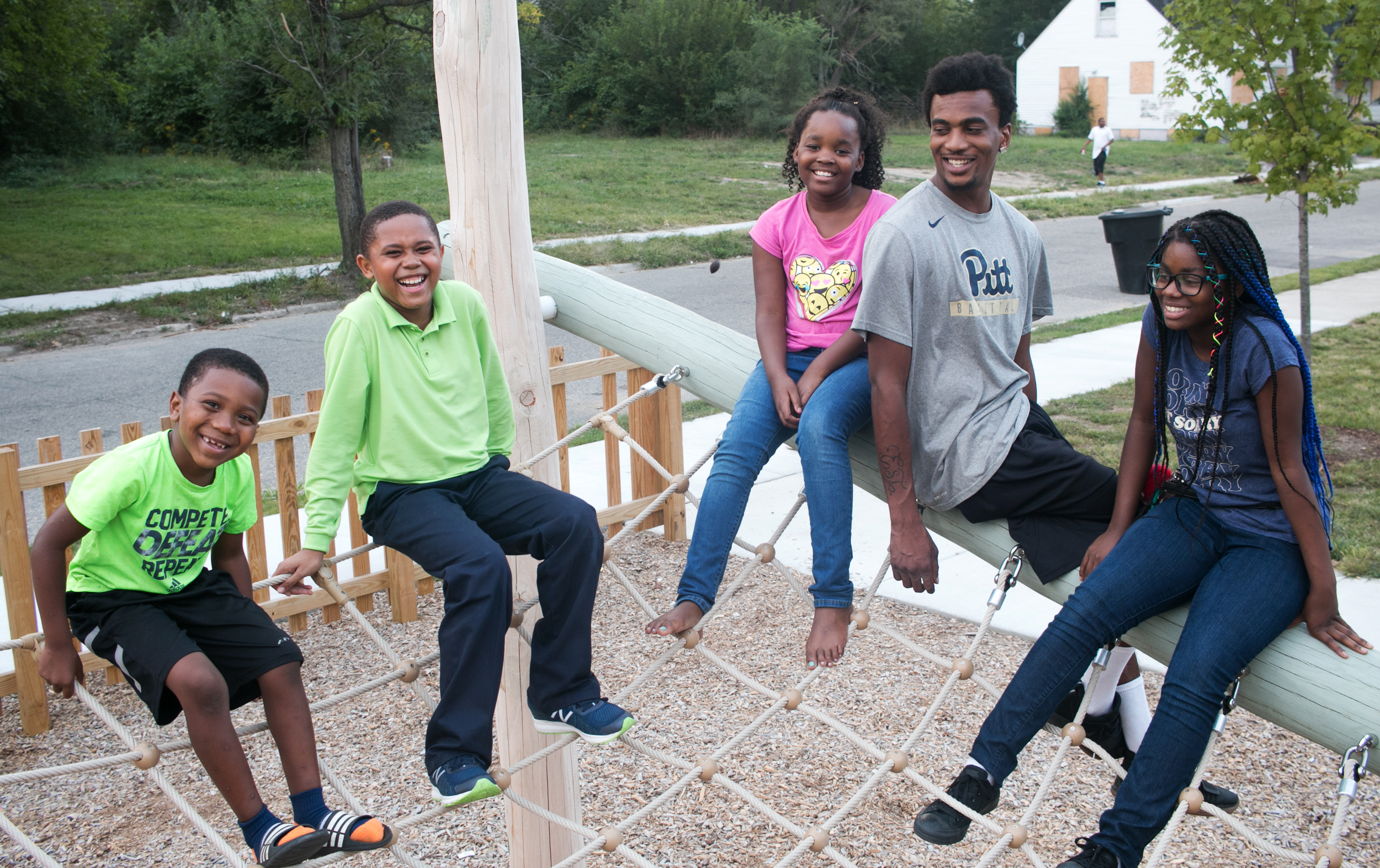
In Detroit, investment in the Fitzgerald neighborhood is turning vacancy into an asset as a new model for neighborhoods across the city. Vacant lots have been turned into a park and a greenway, along with a series of neighborhood hubs for community gardens and smaller recreation spaces. The commercial corridors are being reactivated with retail uses, and a storefront center for neighborhood design and planning houses staff from collaborating partners and public programming.

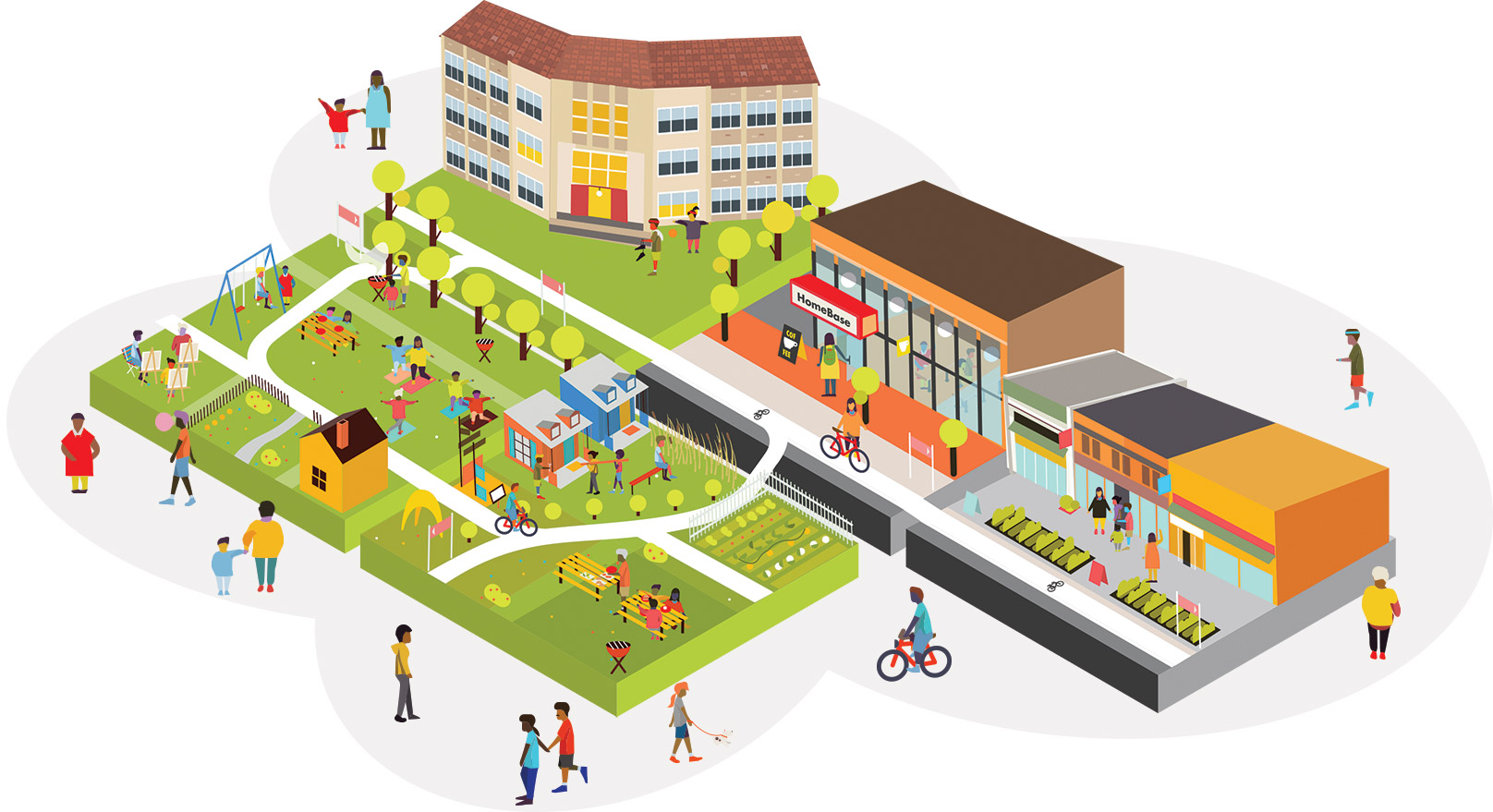

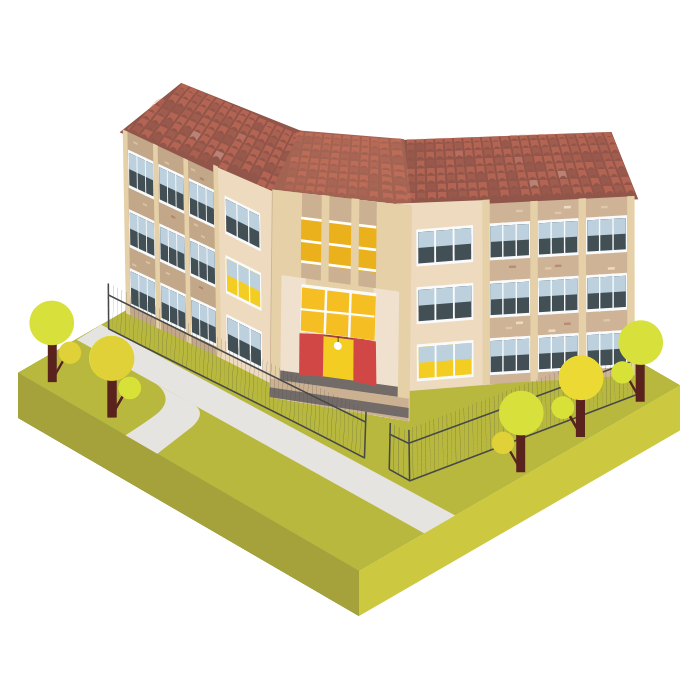
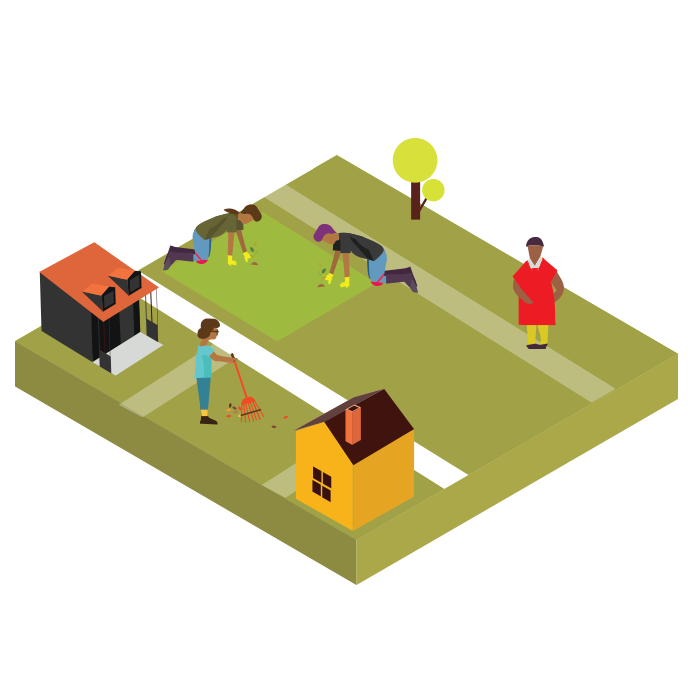
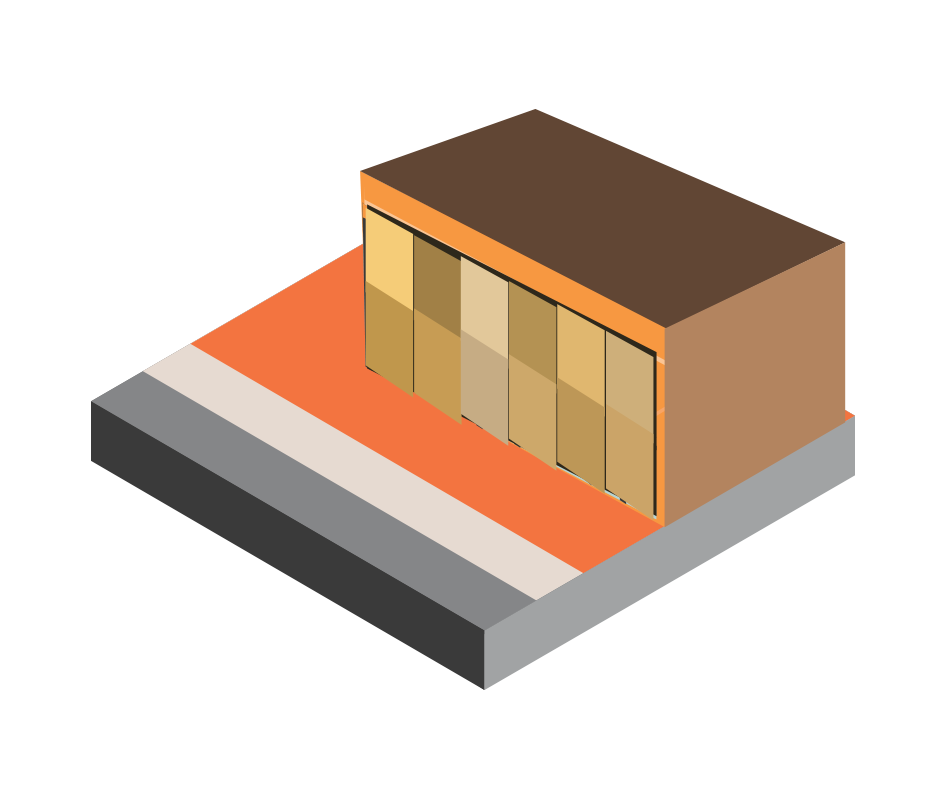
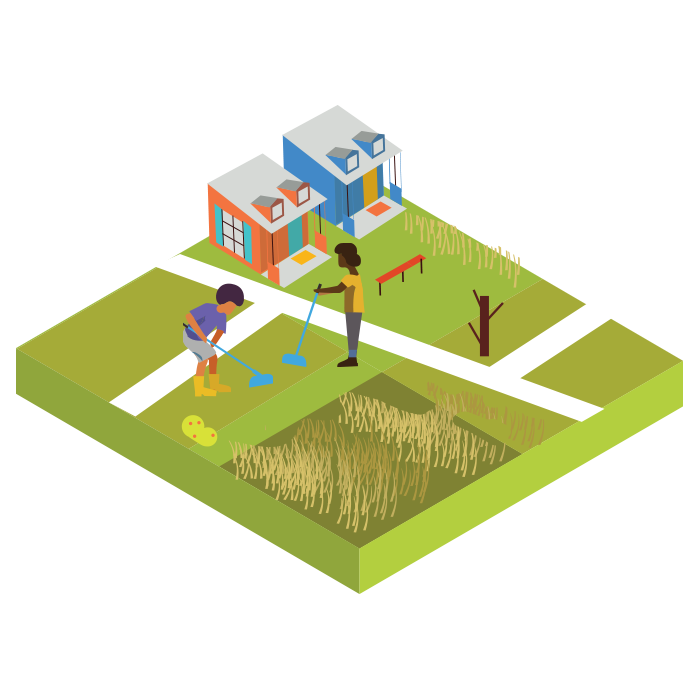
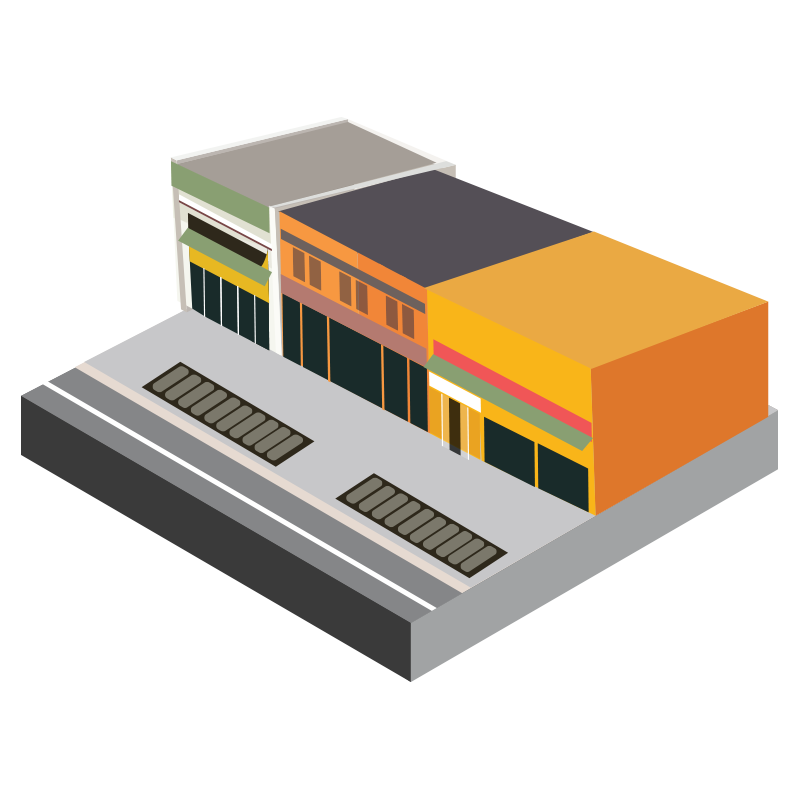
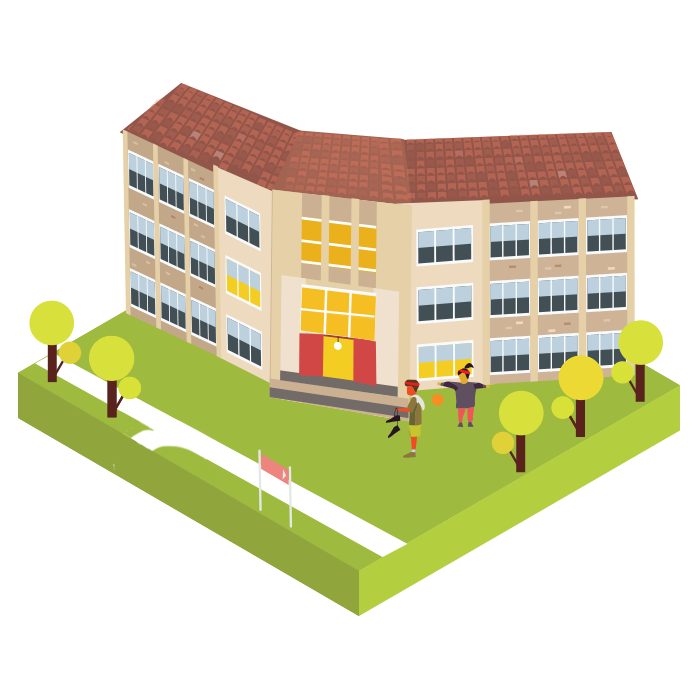
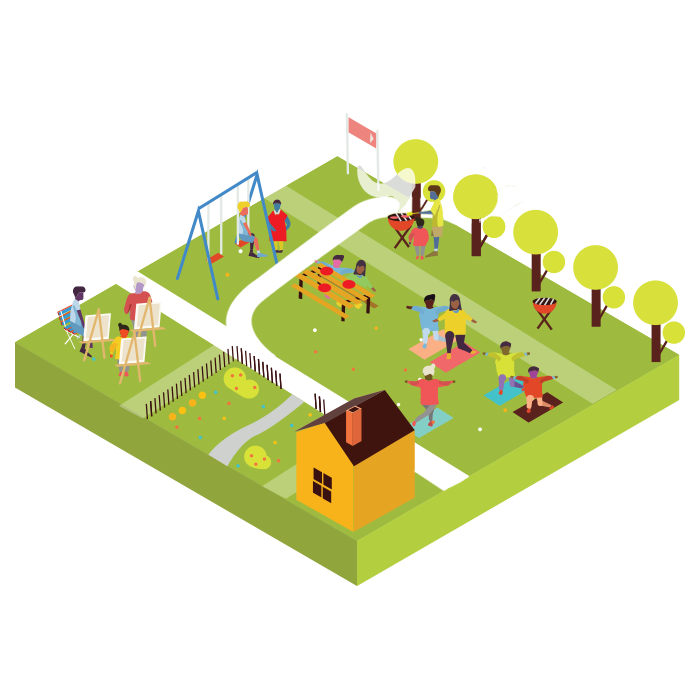
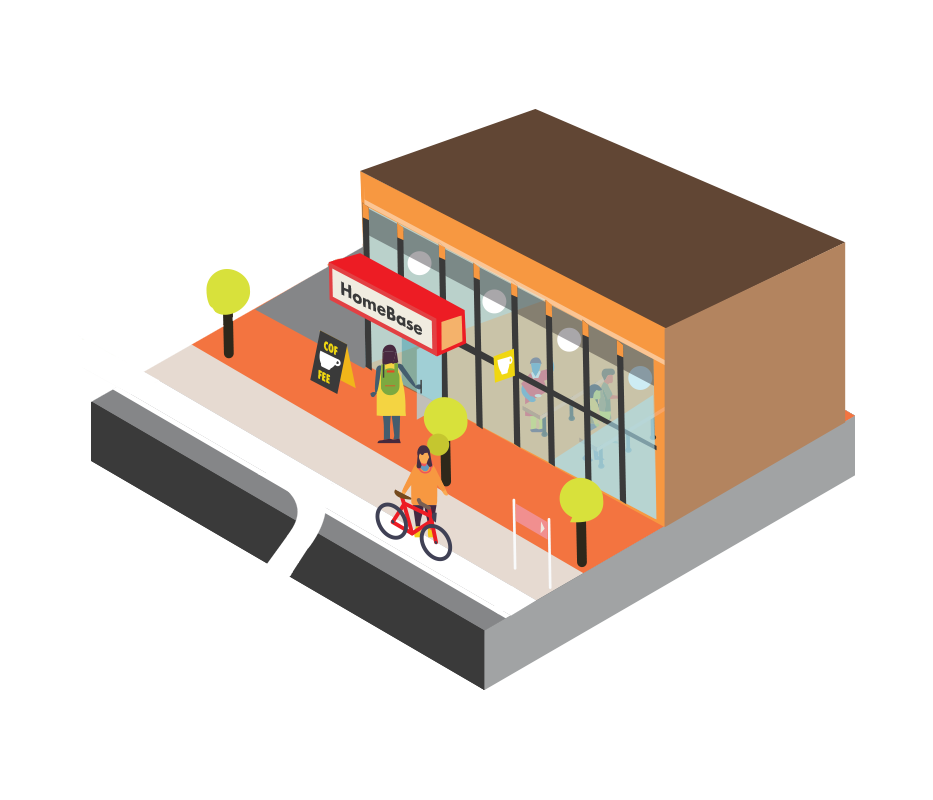
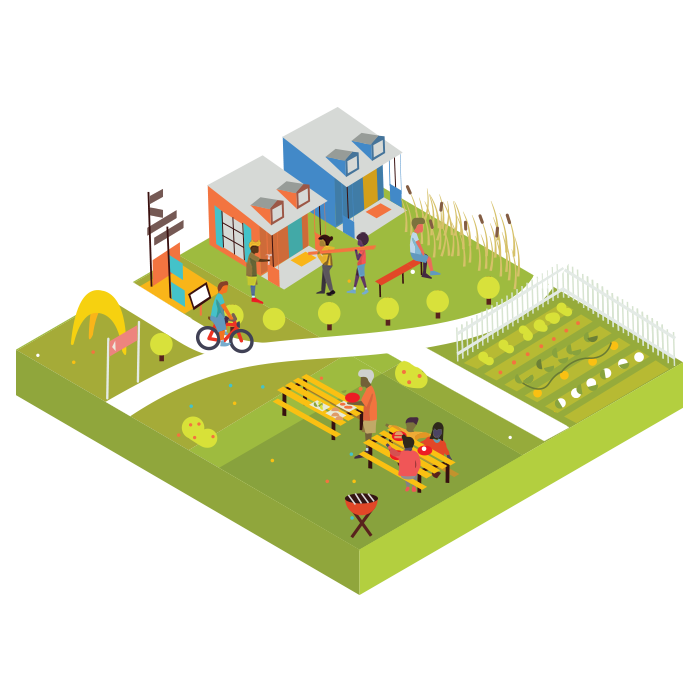
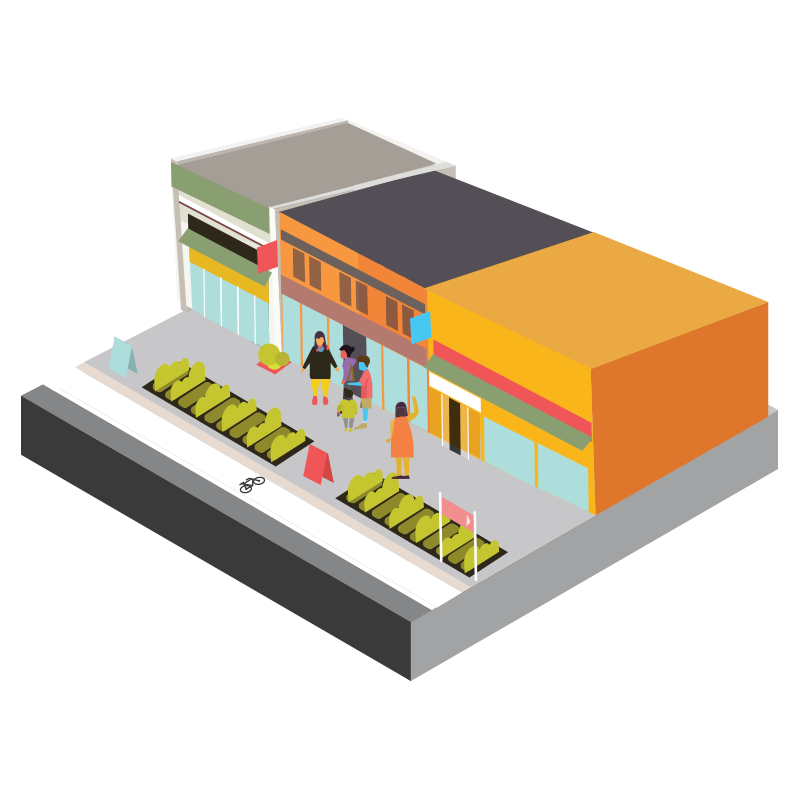









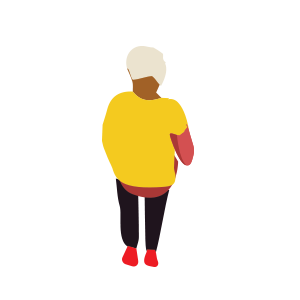
This project supports the development of a network of civic commons sites in a neighborhood lacking traditional civic assets, removing the barriers that separate two anchor institutions from the community that surrounds them through the creation of a new public realm.
Detroit’s Livernois-McNichols neighborhood area offers an opportunity to explore the meaning of the civic commons at multiple scales:
At the Neighborhood Scale: Fitzgerald Land Stewardship
The reimagining of more than 25 acres of vacant parcels scattered across the Fitzgerald neighborhood into a new set of amenities includes a passive recreational greenway and a linear connection between Marygrove College, the University of Detroit Mercy and the community. The project team is partnered with workforce development programs that train residents in green-collar construction and maintenance jobs and allow residents to participate in the revitalization of their communities.
At the Corridor + Building Scale: Reigniting a Walkable Main Street
Transforming an auto-oriented street into an inviting and safe place for pedestrians and cyclists to linger expands the shared spaces between neighborhoods. Revitalizing obsolete, one-story commercial structures on McNichols and multiple vacant parcels on Livernois Avenue directly across from the University of Detroit Mercy campus, creates multiple benefits: a traditional Main Street with mixed-use retail anchored by local entrepreneurial talent, a community storefront that brings together a myriad of collaborators, a new front door for the campus and gathering places for the neighborhood.
At the Human Scale: Civic Engagement and Programs
Critical to the success of this project is the need to rejuvenate the civic character of the neighborhood by investing in and uplifting the communities of residents, students, faculty, staff, businesspeople and property owners. Building local community capacity is a critical element in sustaining this neighborhood work long term. This investment in human capital builds trust within the community, in city government, at the universities and with development actors. It also provides technical and employment support for businesses and residents. Systems and infrastructure to support stewardship, programming and advocacy for the commons can inform policy citywide.
Detroit’s project is located in a neighborhood that is among Mayor Mike Duggan’s top priorities for revitalization, offering an opportunity to reimagine the civic commons in a way that is especially relevant for cities and neighborhoods not rich in existing civic assets.
Learn more about the powerful impacts of Detroit’s work to reimagine civic assets in our report, The Power of the Commons.
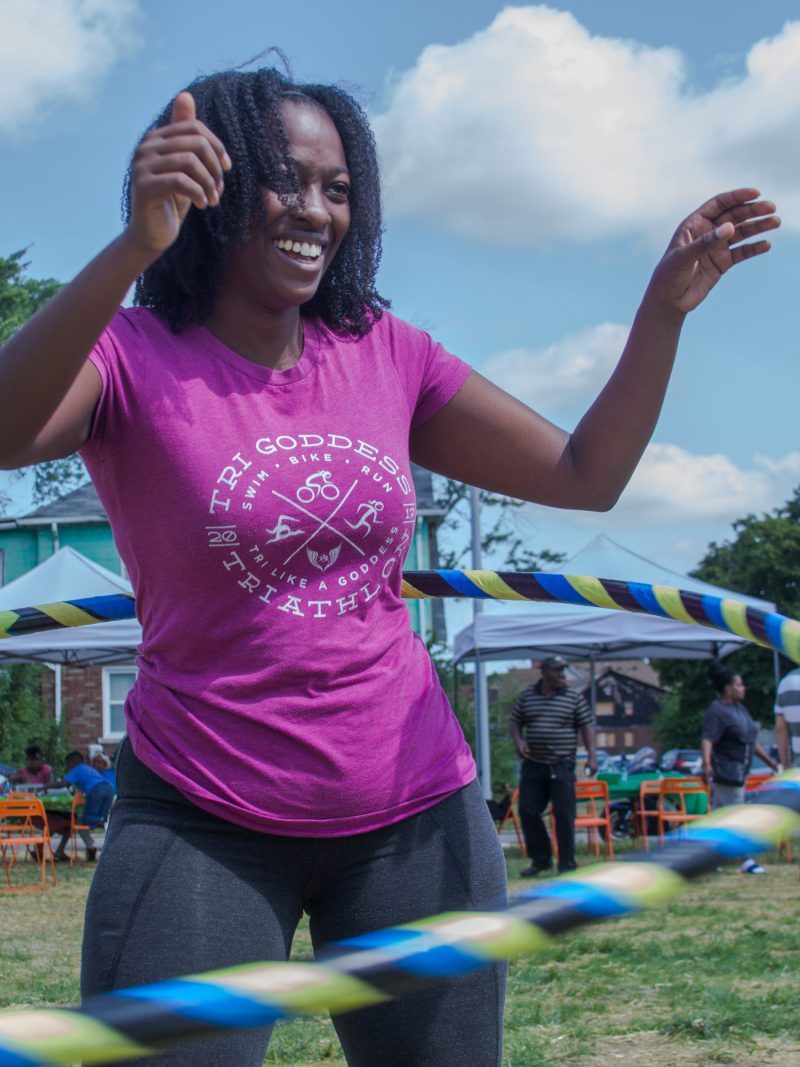
City of Detroit Planning and Development Department
City of Detroit:
Detroit Collaborative Design Center
Detroit Economic Growth Corporation
Detroit Land Bank Authority
The Greening of Detroit
Invest Detroit
Live6 Alliance
University of Detroit Mercy